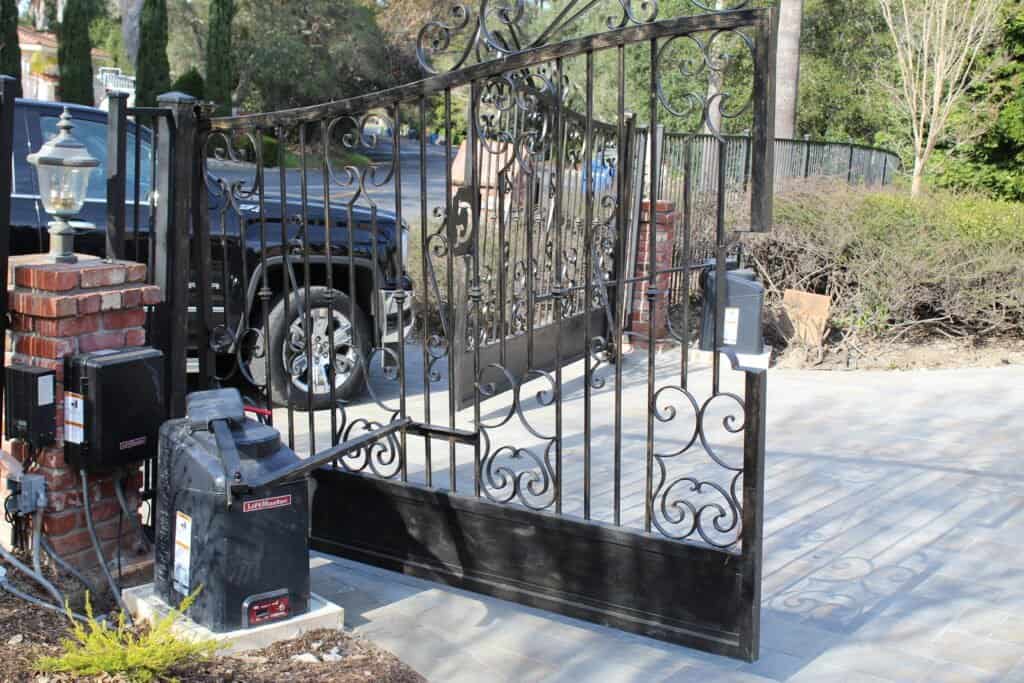As hospitals and medical facilities continue to implement measures for heightened security and to streamline their operations, many are now turning to automatic gates. These gates offer many benefits that can improve the overall experience of patients and visitors, help safeguard employees, and save valuable time and money for medical facilities.
In this article, we will explore the advantages of automatic gates in the healthcare industry, including their role in preventing unauthorized access, improving traffic flow and accessibility, and enhancing overall security. We will also address frequently asked questions regarding the installation and operation of automatic gates in hospitals and medical facilities.
1. Preventing Unauthorized Access
When it comes to security, one of the most important aspects is controlling who has access to your facility. With automatic gates, you can restrict access to only authorized personnel, such as employees and emergency responders.
Automatic gates are equipped with advanced access control systems that allow you to grant or deny access based on a variety of factors, such as credentials, time of day, and the specific areas of the medical facility that visitors and employees are allowed to access. This ensures that only individuals with a valid need to enter the medical facility are allowed access.
For hospitals and medical facilities, this is especially important. You want to make sure that only authorized personnel can enter areas where sensitive medical equipment, medications or other sensitive items are stored to ensure its security.
2. Improving Traffic Flow and Accessibility
Automatic gates can also help improve traffic flow and accessibility in hospitals and medical facilities. By controlling the flow of vehicles and people entering and exiting the facility, automatic gates can reduce traffic congestion, which can help save time and improve overall efficiency.
The gates can be programmed to operate on a schedule so that only specific vehicles are allowed to enter or exit at certain times of the day. This can be especially helpful in the case of emergency vehicles arriving at a hospital.
3. Enhancing Overall Security
In addition to controlling access and improving traffic flow, automatic gates can also enhance overall security for hospitals and medical facilities. Many automatic gate systems come equipped with advanced security features such as video surveillance, facial recognition, and license plate recognition technology.
Facial recognition technology, for instance, can help identify unauthorized individuals who may be trying to enter the medical facility using false identities. License plate recognition technology, on the other hand, can help track the movements of vehicles entering and exiting the facility, making it easier to identify potential security threats.
FAQs Regarding Installation and Operation of Automatic Gates in Hospitals and Medical Facilities
1. What are the types of automatic gates available for medical facilities?
There are several types of automatic gates available, including swing gates, sliding gates, and vertical pivot gates. Each has its advantages and disadvantages, requiring greater consideration before choosing the right one for each facility.
2. What considerations are important when deciding which automatic gate system to install?
When selecting an automatic gate system, the considerations include the potential ingress and egress points of the medical facility, the length and height of the gate, the size of the gate operator, and the overall aesthetics of the gate system.
3. Who installs automatic gates in hospitals and medical facilities?
There are many professional gate installation companies specializing in automatic gates, many that have subject matter expertise in installing gates for healthcare facilities.
4. How can automatic gate systems be incorporated into the daily routines of hospital employees?
Automatic gate systems can be integrated into the hospital’s security system, with designated access codes given to employees who require access. As part of the security system, automatic gates can be programmed to open and close based on certain schedules, such as during shift changes or when visitors are most likely to arrive.
Conclusion
Installation of automatic gates in hospitals and medical facilities can provide significant benefits, including increased security, better traffic flow, and improved accessibility. Hospitals and medical facilities should, however, assess their individual needs and requirements to determine the best course of action when looking into the installation of automatic gate systems. Overall, however, it’s fair to say that automatic gate systems can significantly enhance the safety and efficiency of medical facilities, employees, and patients alike.


